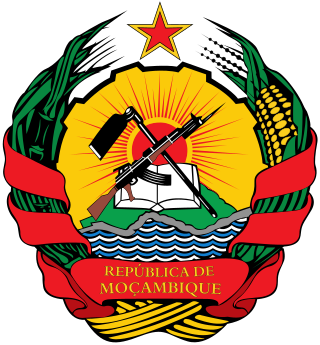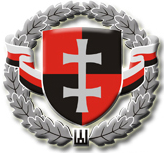This article needs additional citations for verification .(August 2020) |
| ||
The 23rd convocation local councils of Republic of Belarus elections were held in April 1999.
This article needs additional citations for verification .(August 2020) |
| ||
The 23rd convocation local councils of Republic of Belarus elections were held in April 1999.
In 1998 the "Elections of local deputies" law was adopted. The regulation limiting the heads of Councils from holding office for more than two consecutive terms was abolished. Amendments to the law limited the participation of opposition parties' activists. Those convicted of for, for example, participation in demonstrations or unauthorized protests and meetings, were banned. The law complicated the process of candidate selection, and deprived non-governmental organizations of the right to nominate candidates to municipal elections, although workers' associations maintained that right.
After events of the mid-1990s, Belarusian society remained politically indifferent to the local governance system. Ruling elites, despite numerous objections by political opponents, took local political processes under control and increased citizen participation. Authorities organized an effective election process, functioning without competition or alternative candidates. Local authorities were almost totally purged of opposition elements and subordinated to the governing center.
On 1 February 1999, political parties and non-governmental organizations had to re-registered under new rules.
On 23 December 1998, according to the resolution of "Congress of republican democratic forces", opposition parties rejected participation in elections, as "there are no conditions for a free and democratic election process in Belarus", [1] and refused to nominate candidates.
24,557 deputy seats were contested by 27,362 candidates. 66.3% of eligible voters participated. A significant part of the electoral districts had no alternative candidate. The Liberal Democratic Party withdrew its candidates in late March.
Of 24,566 vacant deputy seats, 24,058 were filled (97.9%). Even though most opposition political parties boycotted the elections, opposition communists managed active campaigns and nominated over 750 candidates, 250 of whom won their deputy seats. Party candidates were also delegated from the Party of Popular Accord and Slavic Council.

Politics in Mozambique takes place in a framework of a semi-presidential representative democratic republic, whereby the President of Mozambique is head of state and head of government in a multi-party system. Executive power is exercised by the government. Legislative power is vested in both the government and the Assembly of the Republic.

The politics of Belarus takes place in a framework of a presidential republic with a bicameral parliament. The President of Belarus is the head of state. Executive power is nominally exercised by the government, at its top sits a ceremonial prime minister, appointed directly by the President. Legislative power is de jure vested in the bicameral parliament, the National Assembly, however the president may enact decrees that are executed the same way as laws, for undisputed time.

The United Civic Party is a banned liberal-conservative and liberal political party in Belarus. The party opposes the government of Alexander Lukashenko and has participated in the country's elections on a few occasions, but it did not have a single member in the Belarusian parliament until one member was elected during the 2016 elections. It claims that its lack of seats is due to the unfairness of the election process.

The BPF Party is a banned political party in Belarus. It was de facto established after the split of the social movement Belarusian Popular Front in 1999. The Belarusian Popular Front was founded during the Perestroika era by members of the Belarusian intelligentsia, including Vasil Bykaŭ. Its first and most charismatic leader was Zianon Pazniak.

Belarus elects on national level a head of state—the president—and a legislature. The president is elected for a five-year term by the people. The National Assembly has two chambers. The House of Representatives has 110 members elected in single-seat constituencies elected for a four-year term. The Council of the Republic has 64 members, 56 members indirectly elected and eight members appointed by the president.

Elections in Cuba are held at municipal, provincial, and national levels. Cuba is a one-party state, with the Communist Party of Cuba being described as the "superior driving force of the society and the state" in the Constitution of Cuba, and the communist party is the only official political party. Elections in Cuba are not considered democratic because the government does not allow free and fair voting.

The Constitution of the Republic of Belarus is the ultimate law of Belarus. The Constitution is composed of a preamble and nine sections divided into 146 articles.
Vladimir Novosiad is a Belarusian politician of liberal orientation, the leader of Belarusian Liberal Party of Freedom and Progress. He was born on April 12, 1968, in Kiev (Ukraine). Variants of his name include the following: Vladimir Novosyad, Uladzimir Navasiad, Uladzimir Navasyad,. Married and has two daughters.

The government of Belarus is criticized for its human rights violations and persecution of non-governmental organisations, independent journalists, national minorities, and opposition politicians. In a testimony to the United States Senate Committee on Foreign Relations, former United States Secretary of State Condoleezza Rice labeled Belarus as one of the world's six "outposts of tyranny". In response, the Belarusian government called the assessment "quite far from reality". During 2020 Belarusian presidential election and protests, the number of political prisoners recognized by Viasna Human Rights Centre rose dramatically to 1062 as of 16 February 2022. Several people died after the use of unlawful and abusive force by law enforcement officials during 2020 protests. According to Amnesty International, the authorities didn't investigate violations during protests but instead harassed those who challenged their version of events. In July 2021, the authorities launched a campaign against the remaining non-governmental organizations, liquidating at least 270 of them by October, including all previously registered human rights organizations in the country.

The Right Alliance was a youth non-governmental organization in Belarus. It functioned as an organizing committee and aimed to get officially registered. The RA stand for conservative, traditional values and supported Belarusian national revival.

The Youth Christian Social Union – Young Democrats, often shortened to the YCSU Young Democrats is a Christian democratic youth organisation from Belarus. Since 2004 the YCSU has been a member of the Youth of the European People's Party, an umbrella organization of European political youth organisations that is the official youth wing of the European People's Party. The YEPP brings together over 54 centre-right youth political organisations from over 35 countries across Europe and is considered to be the largest political youth organisation in Europe. The YCSU Young Democrats was admitted as an observer member of the European Christian Political Youth Network in 2004.

Parliamentary elections were held in Belarus on 23 September 2012. At stake were the 110 seats in the House of Representatives, the lower house of the National Assembly of Belarus.

The Belarusian Left Party "A Just World" is a former left-wing political party in Belarus that opposes the government of president Alexander Lukashenko. Until October 2009, it was known as the Belarusian Party of Communists.

The Belarusian Patriotic Party was a political party in Belarus loyal to President Alexander Lukashenko. Nikolai Ulakhovich was the party's chairman.

Parliamentary elections were held in Belarus on 17 November 2019.

2010 26th convocation local councils of Republic of Belarus elections were held on 25 April.

27th convocation local councils of Republic of Belarus elections were held on 23 March 2014. 1328 Local Deputy Councils were filled with 18,816 representatives. Moreover, at the same time elections of single deputy to House of Representatives of National Assembly were held in Gomel-Navabielicki 36 electoral district where government-favoured candidate was removed from elections just before 2012 parliamentary election, and the only candidate left did not receive enough support.

28th Convocation Republic of Belarus deputies to Local Councils of Deputies elections are elections to Belarus Local Councils to Deputies elections conducted on 18 February 2018. Electoral campaign started in November 2017. Citizens of the respective administrative subdivision elect the council for a term of four years under procedure set within the Electoral Code of Republic of Belarus.

The 1999 Belarusian presidential election was a political protest action by members of Belarusian opposition who did not recognise the 1996 constitutional reform which extended Alexander Lukashenko's presidential term.
Olga Mikhailovna Abramova is a Belarusian political scientist and politician. A Candidate of Sciences in philosophy, Abramova was member of the House of Representatives from 2000 until 2008, and member of the Supreme Council of the Republic from 1996 to 2001. Although a pro-Russian politician, Ambramova is also a supporter of good relations between Belarus and the West. In her opinion, Alexander Lukashenko's policy enjoys the support of the majority of society. Abramova is critical of some of the leaders of the Belarusian opposition.